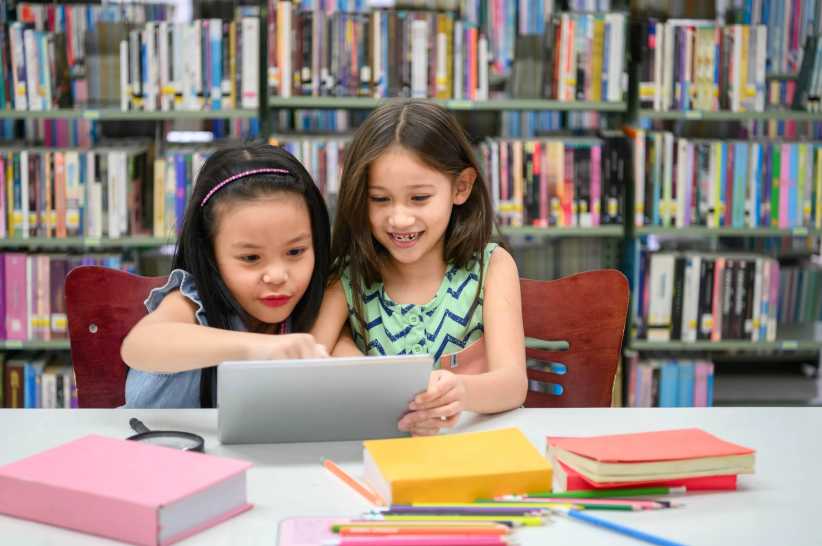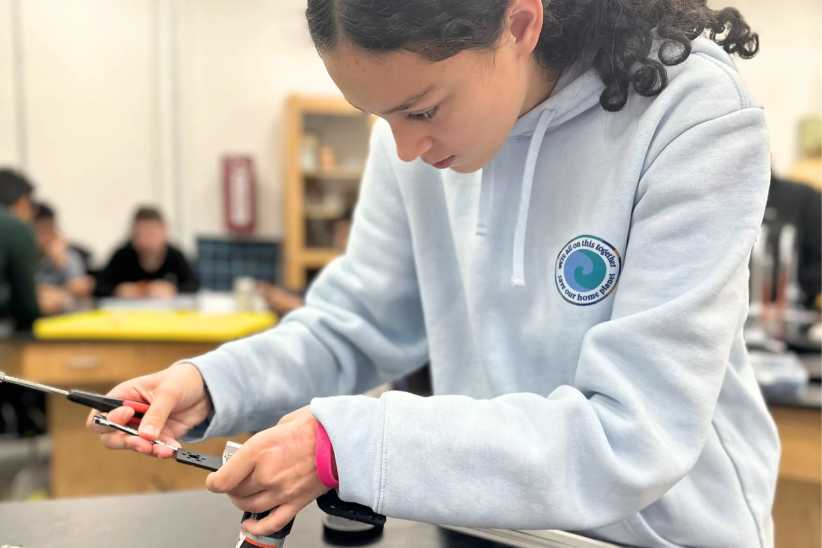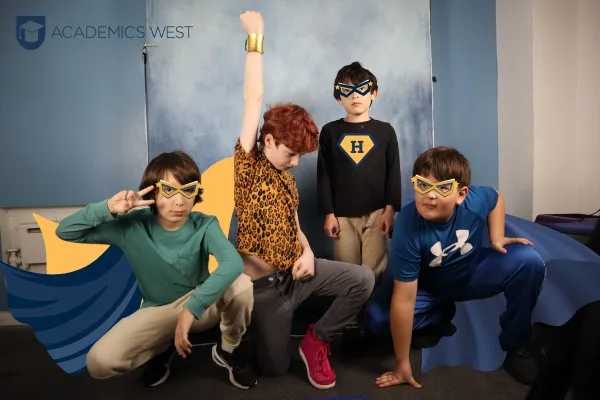 Your child comes home from school and is utterly drained. You know the value of academic enrichment and want to spend time building new skills but you also don’t want to overwhelm him or burn him out. Finding fun ways to engage your child during weekend and off-school times (especially in ways that don’t feel like school work) can help further develop his academics while fostering a true love of learning. Try some of the ideas detailed below.
Your child comes home from school and is utterly drained. You know the value of academic enrichment and want to spend time building new skills but you also don’t want to overwhelm him or burn him out. Finding fun ways to engage your child during weekend and off-school times (especially in ways that don’t feel like school work) can help further develop his academics while fostering a true love of learning. Try some of the ideas detailed below.
Cook Together
Cooking together is a great way to reinforce reading and math skills, while serving as a useful platform for communication. Try baking cookies with your child! Young kids can cut dough, roll it out, or pat sugar in a cup to build stronger fine motor skills. Older kids can practice measurement, like pouring 1/4 cup of oil, then 3/4 cup of water into a bowl. You might discuss how you’d alter the measurements if you cooked half or double the recipe instead of the whole recipe. Have your child read the recipe aloud to you (if he can read of course) or analyze the nutrition label to reinforce literacy skills. So much value can be found in making just a single recipe together!
Create a Garden
Creating a garden is another fun and engaging way to reinforce learning (and, of course, enjoy some tasty by-products). Decide with your child which plants you will grow and where you’ll grow them. Then measure out the space to reinforce math concepts. What will the length and width of the garden be? Then determine an appropriate distance between seeds and lay out the plans for your garden. As the plants grow, reinforce science concepts by comparing the growth. Is one plant growing faster than the other? What might help or hinder each plant’s development? Are certain conditions affecting the speed of their growth? Have your child measure and maintain records of each plants’s growth and assess these changes. To incorporate literature, have her keep a journal where she records her data and also writes daily or weekly thoughts about her experience and lessons learned from creating the garden.
Watch Movies
In today’s tech-oriented world, many kids are highly focused on the present or future, but seem less interested and engaged in learning about the past. There is so much to learn, however, about heroes from our past and all of the achievements and failures that ocurred. Try spending some time with your child watching historical movies to help him gain a better sense of our history and lessons from the past. “Young Mr. Lincoln,” for instance, is a great movie from 1939 that unveils the early days of President Lincoln. “Danton,” from 1983, portrays the French Revolution, “A Night to Remember” from 1912 shows the Titanic’s sinking, and “Gallipoli” from 1982 portrays a riveting World War I battle.
Have Fun with Science Experiments
Most kids love getting their hands dirty and learning fascinating facts from science experiments. Try some fun ones that will amaze your child, using simple household items. You can try making quicksand, for instance, using 1 cup of maize cornflour, a half cup of water, a spoon, and a container. Simply have your child mix the corn flour and water in a container, and then slowly pour out the quicksand, noticing it’s consistency, and amazing the crowd with the cool creation! Another fun experiment is exploring the conditions in which chocolate melts. For this one, you’ll need two full bars of different types of chocolate squares (milk chocolate and white chocolate work well), a paper plate, a pencil, and a sheet of paper or journal. Have your child place one of the chocolate bars on the paper plate and place it outside in the shade. Use a thermometer to record the temperature. Then have your child note whether the chocolate melted and, if so, how long it took to melt. Then compare it to the other type of chocolate. Did one take more or less time to melt? You can also try the same experiment in a sunny area, or perhaps move to a different location and see if that new setting changes the melting time. Make sure she compares the results from one chocolate to the other and discuss any differences with her. You can explain that at certain temperatures chocolate (and many other items) shift from a solid to a liquid.
There are many ways to reinforce learning outside the classroom. Try these ideas with your child to build core academic concepts, have fun, and help him find a true love for learning.
Dr. Emily Levy is the founder of EBL Coaching, a local tutoring program that specializes in one-on-one home and on-site instruction for students in grades pre-K-12. She is also the author of the workbook series Strategies for Study Success and Flags and Stars. To learn more about Emily Levy and EBL Coaching, visit eblcoaching.com!

















